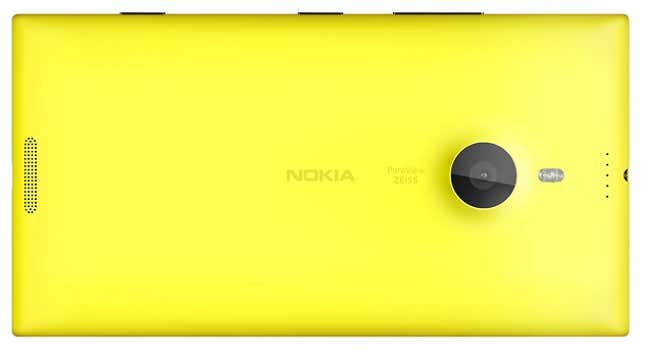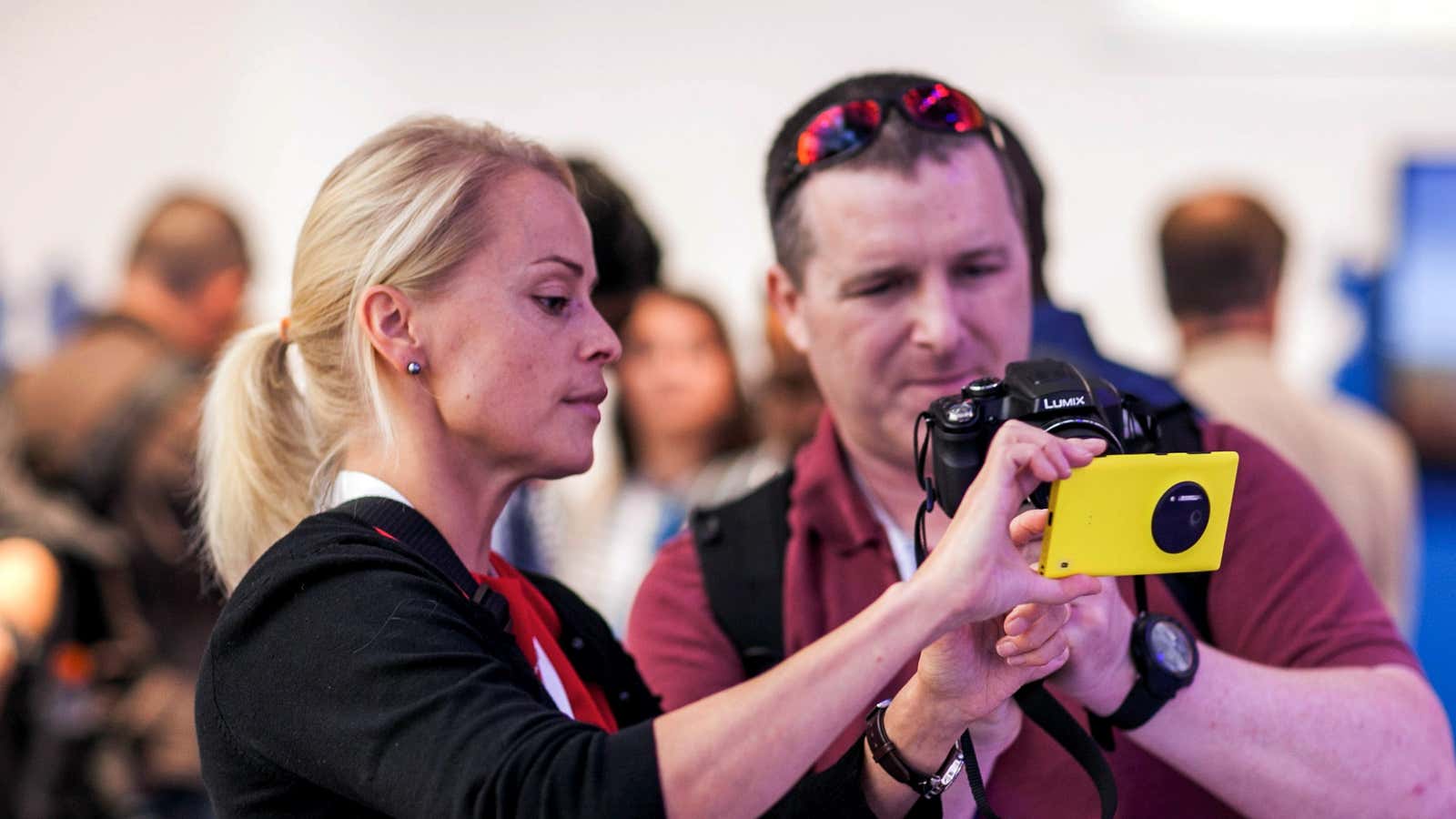Nokia just unveiled two new 6-inch Windows-based smartphones (really, “phablets”) and a 10-inch tablet. They’re very pretty and the phones are arguably the most usable phablets out there, in terms of their hardware and design. They include a bevy of new features, including awesome cameras, multiple microphones, and a “beamer” app that can display the contents of the phone in a web browser on a PC.

But Windows, as an operating system for mobile devices, continues to command a mere 4% of the global market. Nokia’s phones would be strong competitors against smartphone leader Samsung, and could put the company in contention for third largest smartphone maker in the world—if Nokia had chosen to build phones based on Google’s Android operating system instead of Microsoft’s Windows Phone and Windows RT.
As it is, the paucity of users of Windows Phone means a smaller market for apps and fewer developers working on the platform. (Instagram, now owned by Facebook, is only now launching on Windows Phone, three years after it launched on iPhones.)
This doesn’t mean Nokia and Microsoft’s mobile ambitions are dead. As Microsoft completes its ingestion of Nokia, which already makes 90% of the world’s Windows phones, the company is likely to focus on markets in which first-time smartphone buyers and low prices are more important than in the US, where the Windows Phone operating system is weak and the handsets themselves are subsidized by mobile carriers.
It’s telling that Nokia has no plans to bring the cheaper of its two new phablets, the 1320 (priced at $339) to the US. In Europe, Windows Phone is approaching 10% market share. Together, Microsoft/Nokia could hold on to third place in mobile devices. But as mobile eats the world, it could mean a much-diminished future for what was once the undisputed giant of personal computing.
